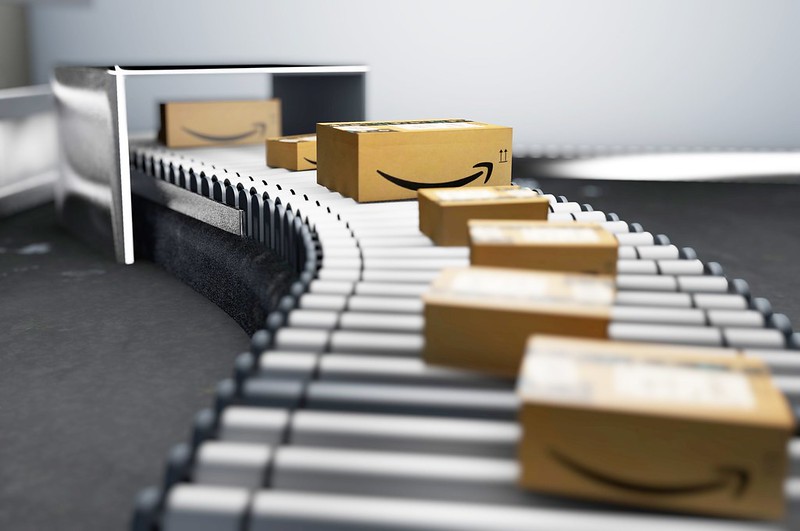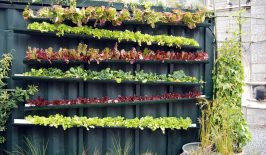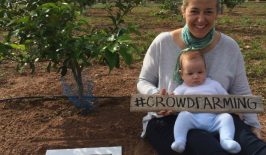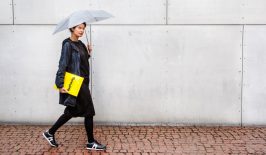The online mail order business is booming. While coronavirus lockdowns still pose an existential threat to many small businesses, which have had to remain closed, big online retailers like Amazon are making a killing from the pandemic. Jeff Bezos, the founder and CEO of Amazon, is thought to now be the richest person in the world, with a fortune of around 189 billion dollars. According to the Bloomberg Billionaires Index, his fortune increased by $74 billion by October of 2020 due to rising Amazon share prices. However, working conditions at the company have been repeatedly criticised. After corona outbreaks happened at several Amazon sites, there were complaints about insufficient protection of employees from coronavirus. Meanwhile, the EU has accused the company of treating external retailers on its own platform unfairly.
The increase in online orders also has a negative impact on the environment. Long transport and delivery routes, especially for product orders from abroad, worsen the CO2 balance of products bought online. Although there are now a handful of companies that use more sustainable packaging and local production, the majority of orders placed via Amazon – and especially the many returns – still have a greater negative effect on the environment than “analogue” purchases do, according to several studies.
“La Zona”: Creating an Alternative to Large Online Retailers
To counter the negative impact of this trend, several cooperative businesses from Catalonia under the leadership of the Opcions cooperative are planning to join forces to create a cooperative sales platform called “La Zona” – or “the area” – which they envision will become a local, ethical and sustainable alternative to large online retailers like Amazon. It’s set to be ready by summer of 2021.
“The Covid 19 crisis has forced a significant part of the population to adapt to digital,” Joana Ariet Porta, CCO at Opcions, told RESET. Whether it was food, games or sports equipment, many people found everything they needed on Amazon during the lockdowns. “But what about traditional shops? What happens to the fruit and vegetable shops, butchers and fishmongers? They weren’t prepared to go digital and didn’t have the capacity to do so. We felt that as cooperative experts in the field of consumption, we had to do something for these shops.”
However, the project cannot compete with Amazon. “It’s impossible,” says Porta. “But behind ‘La Zona’ is not just a simple marketplace, but a project that wants to encourage people to be aware of the consequences of their actions.” The project places great value on the proximity between buyers and sellers, and therefore will be limited to the Catalonia region.
Fair payment, short delivery routes and distribution stations: what “La Zona” is doing differently
By bringing together several cooperative businesses, orders are to be processed jointly and delivery routes shortened. For delivery, the project is working together with the transport company “Koiki”. The employees of Koiki work with distribution stations in order to save CO2; with a total of 50 “micro-hubs” distributed across 17 of the 50 Spanish provinces. From there, parcels are delivered by foot, bicycle or scooter. The delivery people receive a fixed wage and are not paid per parcel delivered, as is common in the industry. The wage thus corresponds to the Spanish minimum income of currently 1,050 euros per month.
José Alonso, a member of the Opcions cooperative, told German media outlet Taz that there are about 200 to 300 cooperatives in the region that are “considered solidarity-based and sustainable in the broadest sense.” The project is aimed at these first. In total, however, there are about 4,000 cooperative enterprises in the region. These could also be integrated into the project in the long term if they wanted to be.
However, according to Ariet Porta, the prerequisite is that the participating enterprises adhere to guidelines regarding sustainability, good working conditions, as well as democratic financial management and a respect for gender equality. If they cannot meet these requirements from the beginning, they will receive support along the way.
The project is supported by funding from Catalonia’s autonomous government and the Barcelona city council and is scheduled to start in May. Until then, the project is focusing on raising awareness via advertising campaigns on TV, radio and social media, as well as one-on-one meetings (currently only virtual) with companies interested in taking part.
This is a translation by Leander Jones of an original article that first appeared on RESET’s German-language site.









